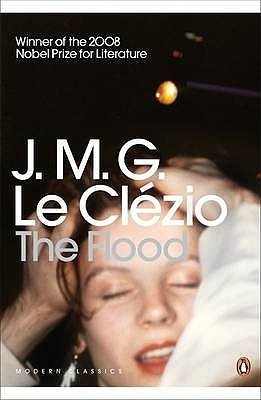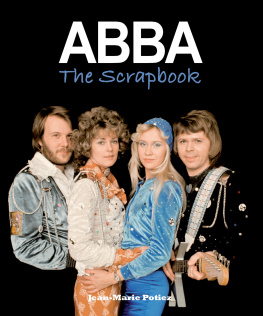Jean-Marie Guyau - The Non-religion of the Future: A Sociological Study
Here you can read online Jean-Marie Guyau - The Non-religion of the Future: A Sociological Study full text of the book (entire story) in english for free. Download pdf and epub, get meaning, cover and reviews about this ebook. year: 2019, publisher: Creative Media Partners, LLC, genre: Religion. Description of the work, (preface) as well as reviews are available. Best literature library LitArk.com created for fans of good reading and offers a wide selection of genres:
Romance novel
Science fiction
Adventure
Detective
Science
History
Home and family
Prose
Art
Politics
Computer
Non-fiction
Religion
Business
Children
Humor
Choose a favorite category and find really read worthwhile books. Enjoy immersion in the world of imagination, feel the emotions of the characters or learn something new for yourself, make an fascinating discovery.

- Book:The Non-religion of the Future: A Sociological Study
- Author:
- Publisher:Creative Media Partners, LLC
- Genre:
- Year:2019
- Rating:4 / 5
- Favourites:Add to favourites
- Your mark:
- 80
- 1
- 2
- 3
- 4
- 5
The Non-religion of the Future: A Sociological Study: summary, description and annotation
We offer to read an annotation, description, summary or preface (depends on what the author of the book "The Non-religion of the Future: A Sociological Study" wrote himself). If you haven't found the necessary information about the book — write in the comments, we will try to find it.
The Non-religion of the Future: A Sociological Study — read online for free the complete book (whole text) full work
Below is the text of the book, divided by pages. System saving the place of the last page read, allows you to conveniently read the book "The Non-religion of the Future: A Sociological Study" online for free, without having to search again every time where you left off. Put a bookmark, and you can go to the page where you finished reading at any time.
Font size:
Interval:
Bookmark:


- INTRODUCTION.
- I. Sociality the basis of religionIts definition.
- II. The connection between religion, sthetics, and morals.
- III. The inevitable decomposition of all systems of dogmatic religion; the state of non-religion toward which the human mind seems to tendThe exact sense in which one must understand the non-religion as distinguished from the religion of the future.
- IV. The value and utility, for the time being, of religion; its ultimate insufficiency,
- Part First.
- THE GENESIS OF RELIGIONS IN PRIMITIVE SOCIETIES.
- CHAPTER I.
- RELIGIOUS PHYSICS.
- Importance of the Problem of the Origin of ReligionUniversality of Religious Beliefs or SuperstitionsVariability of Religions and Religious Evolution.
- I. Idealist theory which attributes the origin of religion to a notion of the infiniteHenotheism of Max Mller and Von HartmannM. Renans Instinct for Divinity.
- II. Theory of a worship of the dead and of spiritsHerbert SpencerSpencers objections to the theory of the attribution of a soul to natural forces.
- III. Answer to objectionsReligious physics sociological in form, and the substitution of relations between malevolent or beneficent conscious beings for relations between natural forcesSociomorphism of primitive Peoples,
- CHAPTER II.
- RELIGIOUS METAPHYSICS.
- I. Animism or polydemonismFormation of the dualist conception of spiritSocial relations with spirits.
- II. Providence and miraclesThe evolution of the dualist conception of a special providenceThe conception of miraclesThe supernatural and the naturalScientific explanation and miraclesSocial and moral modifications in the character of man, owing to supposed social relations with a special providenceIncreasing sentiment of irresponsibility and passivity and absolute dependence.
- III. The creationGenesis of the notion of creationThe dualistic elements in this ideaMonismClassification of systems of religious metaphysicsCriticism of the classification proposed by Von HartmannCriticism of the classification proposed by Auguste Comte,
- CHAPTER III.
- RELIGIOUS MORALS.
- I. The laws which regulate the social relations between gods and menMorality and immorality in primitive religionsExtension of friendly and hostile relations to the sphere of the godsPrimitive inability in matters of conscience, as in matters of art, to distinguish the great from the monstrous.
- II. The moral sanction in the society which includes gods and menPatronageThat divine intervention tends always to be conceived after the model of human intervention and to sanction it.
- III. Worship and religious ritesPrinciples of reciprocity and proportionality in the exchange of servicesSacrificePrinciple of coercion and incantationPrinciple of habit and its relation to ritesSorcerySacerdotalismProphecyThe externals of worshipDramatization and religious sthetics.
- IV. Subjective worshipAdoration and love; their psychological origin,
- Part Second.
- THE DISSOLUTION OF RELIGIONS IN EXISTING SOCIETIES.
- CHAPTER I.
- DOGMATIC FAITH.
- I. Narrow dogmatic faithThe credulity of primitive man: First, spontaneous faith in the senses and imagination; Second, faith in the testimony of superior men; Third, faith in the divine word, in revelation, and in the sacred textsThe literalness of dogmatic faithInevitable intolerance of narrow dogmatic faithBelief in dogma, revelation, salvation, and damnation all result in intoleranceModern tolerance.
- II. Broad dogmatic faithOrthodox ProtestantismDogmas of orthodox ProtestantismRational consequences of these dogmasLogical failure of orthodox Protestantism.
- III. The dissolution of dogmatic faith in modern societyReasons that render this dissolution inevitableComparative influence of the various sciences; influence of public instruction, of means of communication, of industry even and of commerce, etc.The disappearance of belief in oracles and propheciesGradual disappearance of the belief in miracles, in devils, etc.,
- CHAPTER II.
- SYMBOLIC AND MORAL FAITH.
- I. Substitution of metaphysical symbolism for dogmaLiberal ProtestantismComparison with BrahmanismSubstitution of moral symbolism for metaphysical symbolismMoral faithKantMillMatthew ArnoldA literary explanation of the Bible substituted for a literal explanation.
- II. Criticism of symbolic faithInconsequence of liberal ProtestantismIs Jesus of a more divine type than other great geniuses?Does the Bible possess a greater authority in matters of morals than any other masterpiece of poetry?Criticism of Matthew Arnolds systemFinal absorption of religions by morality,
- CHAPTER III.
- DISSOLUTION OF RELIGIOUS MORALITY.
- I. The first durable element of religious morality: RespectAlteration of respect by the addition of the notion of the fear of God and divine vengeance.
- II. Second durable element of religious morality: LoveAlteration of this element by the addition of ideas of grace, predestination, damnationCaducous elements of religious moralityMysticismAntagonism of divine love and human loveAsceticismExcesses of asceticismEspecially in the religions of the EastConception of sin in the modern mind.
- III. Subjective worship and prayerThe notion of prayer from the point of view of modern science and philosophyEcstasyThe survival of prayer,
- CHAPTER IV.
- RELIGION AND NON-RELIGION AMONG THE PEOPLE.
- I. Is religious sentiment an innate and imperishable possession of humanityFrequent confusion of a sentiment for religion with a sentiment for philosophy and moralsRenanMax MllerDifference between the evolution of belief in the individual and the evolution of belief in the raceWill the disappearance of faith leave a void behind?
- II. Will the dissolution of religion result in a dissolution of morality among the people?Is religion the sole safeguard of social authority and public morality?Christianity and socialismRelation between non-religion and immorality, according to statistics.
- III. Is Protestantism a necessary transition stage between religion and free-thought?Projects for Protestantizing FranceMichelet, Quinet, De Laveleye, Renouvier, and PillonIntellectual, moral, and political superiority of ProtestantismUtopian character of the projectUselessness, for purposes of morals, of substituting one religion for anotherIs the possession of religion a condition sine qua non of superiority in the struggle for existence?Objections urged against France and the French Revolution by Matthew Arnold; Greece and Judea compared, France and Protestant nations comparedCritical examination of Matthew Arnolds theoryCannot free-thought, science, and art evolve their respective ideals from within?
- CHAPTER V.
- RELIGION AND NON-RELIGION AND THE CHILD.
- I. Decline of religious educationDefects of this education, in especial in Catholic countriesMeans of lightening these defectsThe priestThe possibility of state-action on the priest.
- II. Education provided by the statePrimary instructionThe schoolmasterSecondary and higher instructionShould the history of religion be introduced into the curriculum?
- III. Education at homeShould the father take no part in the religious education of his childrenEvils of a preliminary religious education to be followed by disillusionmentThe special question of the immortality of the soul: what should be said to children about death,
Font size:
Interval:
Bookmark:
Similar books «The Non-religion of the Future: A Sociological Study»
Look at similar books to The Non-religion of the Future: A Sociological Study. We have selected literature similar in name and meaning in the hope of providing readers with more options to find new, interesting, not yet read works.
Discussion, reviews of the book The Non-religion of the Future: A Sociological Study and just readers' own opinions. Leave your comments, write what you think about the work, its meaning or the main characters. Specify what exactly you liked and what you didn't like, and why you think so.





![St. Jean-Marie Baptiste Vianney - The Little Catechism of the Cure of Ars (with Supplemental Reading: Confession: Its Fruitful Practice) [Illustrated]](/uploads/posts/book/270052/thumbs/st-jean-marie-baptiste-vianney-the-little.jpg)

